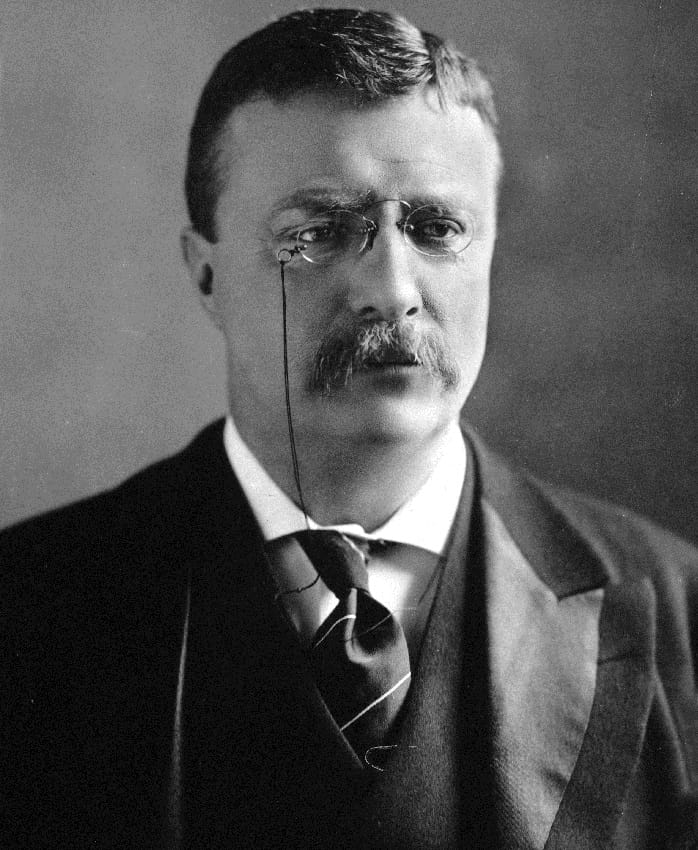
Essay on President Theodore Roosevelt
Theodore Roosevelt (1858-1919) was the 26th President of the United States of America. He was the most dynamic of all the American presidents. Roosevelt was both realist and a romantic in international relations and progressive leader in home policy. He also was an ardent nationalist and desperate moralist.
Roosevelt was born in New York, got education in Harvard, graduating in 1880. In the early 80ies he was formed as the leader of the reformed Republicans in the State Assembly of New York. After that, he made a series of practical reforms as the head of the U.S. Civil Service Commission (1889-1895), the president of the New York Police Commission (1895-1897), an Assistant Secretary of the fleet commander (1897-1898) and New York governor (1899-1900). He has strongly supported the war with Spain in 1898 and behaved himself as a hero in Cuba, being a colonel of volunteers cavalry regiment (Scott, 1997).
Elected as a vice-president of the United States in 1900, Roosevelt became a president after the resignation of William McKinley in September 1901. Seven and a half years Roosevelt tried to balance the interests of farmers, workers and businessmen. Despite his image as a vindicator of government action against the trusts, he preferred to long-term regulation of large corporations in order to make the dissolution, and at the end, he held a legislation act through Congress, creating a Bureau of Corporations and strengthening the regulation of the railroad. He also supported the regulation of the industry of food and medicines. But the most important achievement of his activity was probably the transfer of 125 million acres of public land into the forest reserve and national parks, the creation of the 16 national monuments, such as more California forests, as well as the creation of 51 reserves (Irby, 2002).
In 1904, Roosevelt was elected for the new term, beating in the election a Democrat Alton Parker. After that he had just increased his activity and in 1909 supported the proposals to increase profits and inheritance taxes, as well as other concepts that can be considered radical.
In international affairs, Roosevelt was willing to support the responsibility of the world power. He unleashed incidents, worked separately from the Congress and was ready to use force in defense of national interests. He started the building of canal across Panama Bay. He came face to face with the Kaiser during the German invasion of Venezuela. He summarized the findings of Roosevelt on the Monroe Doctrine, including the right of intervention in the affairs of Latin American countries. He also foresaw the end of the Russian-Japanese war in 1905. The same year he secretly acknowledged the suzerainty of the Japanese in Korea and in 1908 received the Japan’s economic inheritance in Manchuria (Gould, 2000).
Roosevelt did not leave his ideas even after leaving for retirement and in 1910 he made the President William Howard Taft to reduce the commercial ambitions in North China. The last years of his presidency, Roosevelt began the progressive improvement of programs. His participation in the expanded program of regulation and welfare (the “New Nationalism”) has made the conflict between Roosevelt and Taft practically non-existent. In 1912, being the candidate of the Progressive Party, Roosevelt took part in president campaign but lose it. Being the supporter of military training and the entrance of America into World War I, Roosevelt returned to the Republican Party in 1916. He strongly supported the military motives, but on the other hand, opposed the idea of the League of Nations proposed by Wilson (Walker, 2007).
Theodore Roosevelt was the first president of modern times, who strongly met the challenges of the industrial and technological revolutions. Thus, he actively worked to expand federal power.

